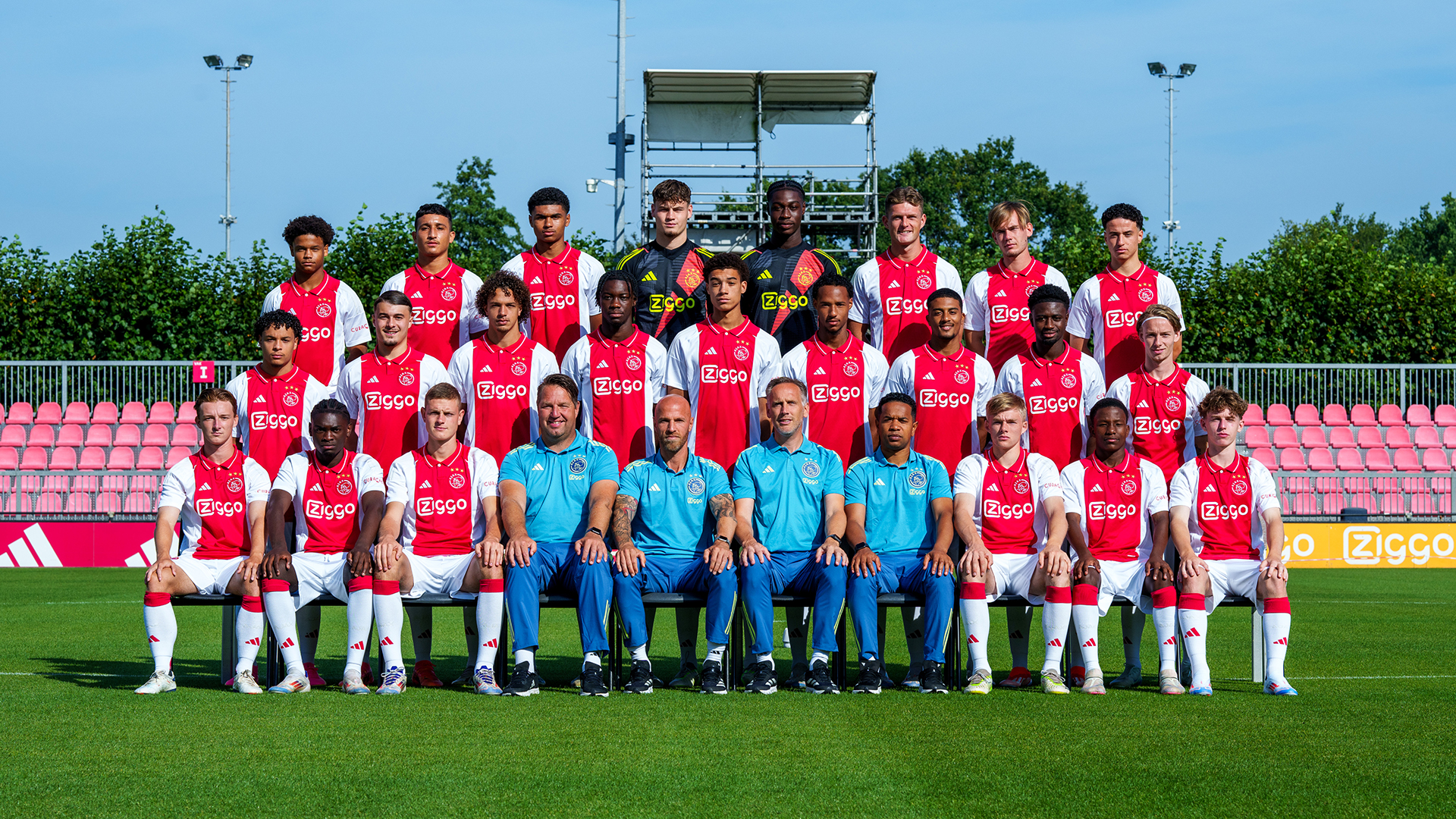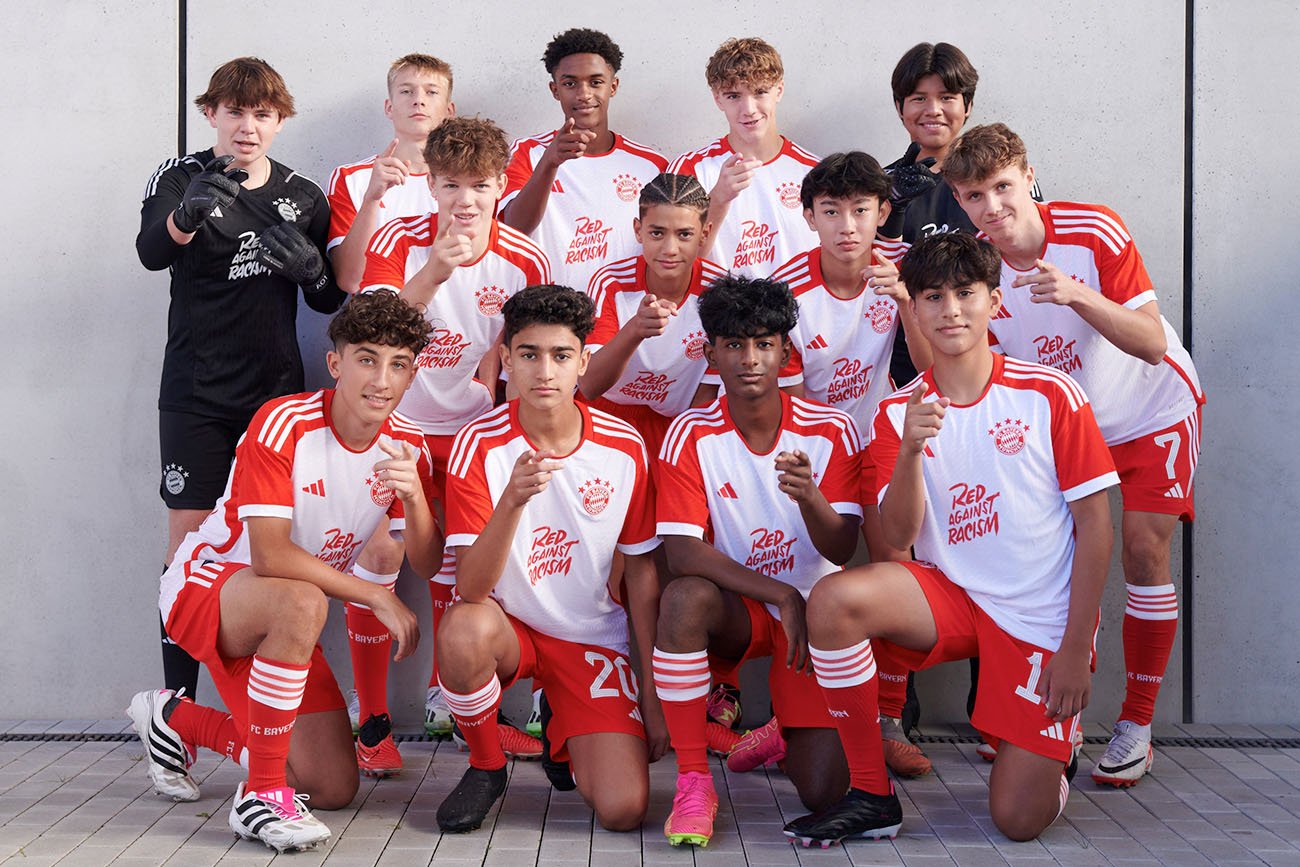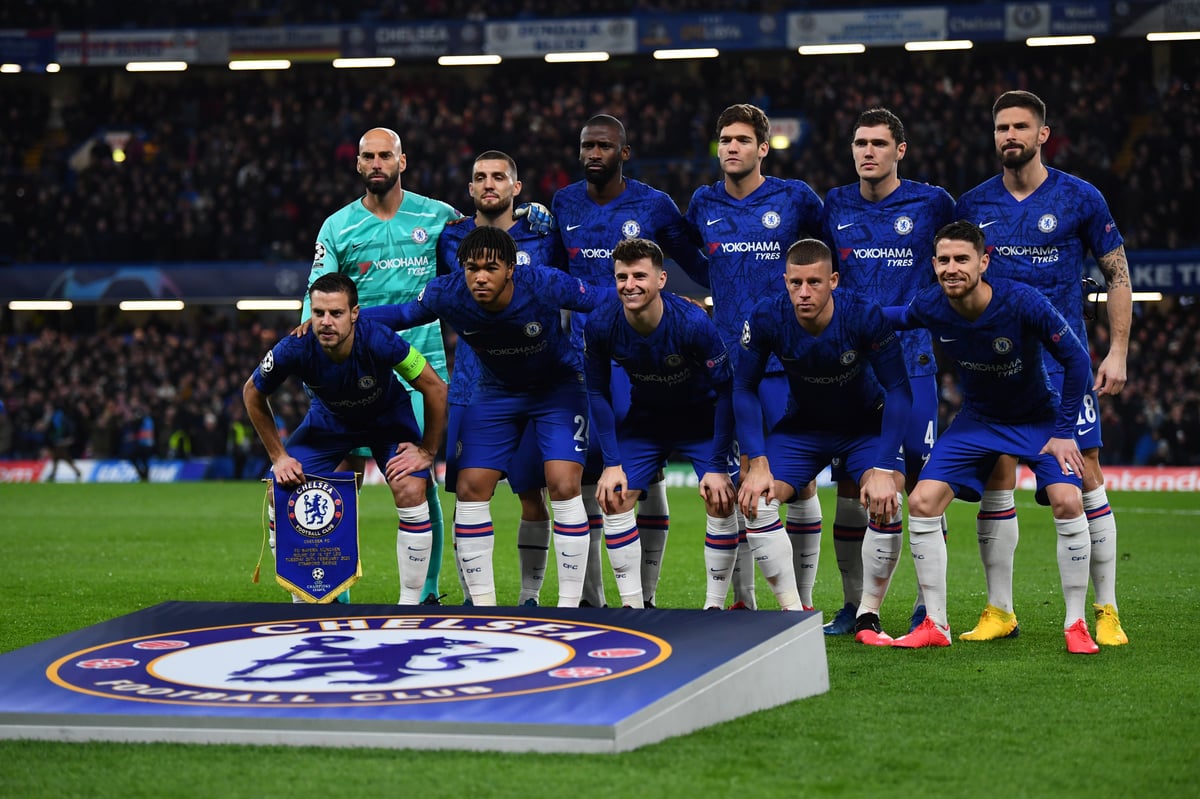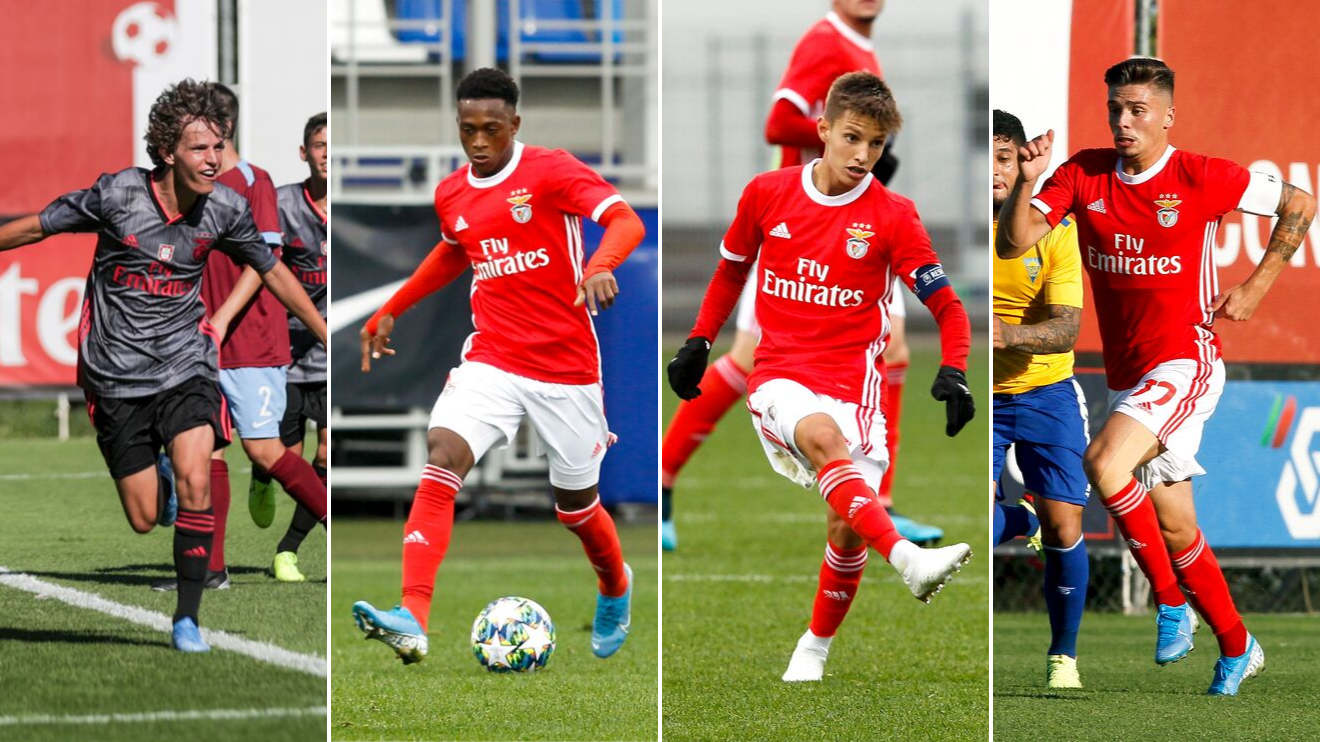Top 10 Best Football Academies In The World 2025
By ICON TEAM | Published on Jun 13, 2025
List Of Top 10 Best Football Academies In The World 2025:
The future of football lies in its academies, which develop young players via demanding training, top-notch facilities, and creative coaching techniques. The 10 academies listed below are notable in 2025 for their outstanding contributions to professional football, turning forth players who are dominant on the national and international scene. These organizations are influencing the next generation of football legends, from Lyon's steady production of innovative stars to Ajax's ground-breaking "Total Football" concept. The top 10 football academies in the world for 2025 are examined in detail below, with rankings determined on player output, influence, and worldwide impact.
1. Ajax Youth Academy (Netherlands):

In 2025, the Amsterdam-based Ajax Youth Academy is still the best place to train a football player. Ajax is well-known for its "Total Football" philosophy, which prioritizes adaptability, technical skill, and tactical awareness. It has produced contemporary stars like Frenkie de Jong and Matthijs de Ligt as well as legendary players like Johan Cruyff and Dennis Bergkamp. At the academy's cutting-edge Sportcomplex De Toekomst, players as young as seven years old receive training to be proficient in a variety of positions. Ajax's emphasis on innovation and judgment guarantees that graduates are prepared for elite European leagues. With 77 current professionals and a second-place ranking in the world for players training in 2020, the academy's lucrative transfer model—which was demonstrated by the €65 million de Jong paid to join Barcelona—solidifies its dominance in both finance and development. Ajax's talent pipeline is further strengthened by its international scouting network and alliances, such as that with former Belgian team Germinal Beerschot.
2. Manchester United Academy (England):
Founded in 1936, Manchester United's academy is a legendary force that is still going strong in 2025. With more than 4,000 consecutive matchday rosters that include at least one graduate, the academy, which is housed in the AON Training Complex, is renowned for its legacy of incorporating homegrown talent into the first team. While modern talents like Marcus Rashford and Kobbie Mainoo demonstrate its continued importance, icons like Bobby Charlton, George Best, and the "Class of '92" (David Beckham, Ryan Giggs, and Paul Scholes) emphasize its legacy. The academy prepares players for high-pressure situations by emphasizing discipline, teamwork, and a strong work ethic. Graduates are certain to be well-rounded because to Manchester United's extensive worldwide scouting network and emphasis on holistic development, both on and off the field. Amad Diallo's €40 million transfer from Atalanta is just one example of how the academy financially supports the team, solidifying its position as a premier school.
3. Sporting CP Academy (Portugal):
The Alcochete-based Sporting Lisbon academy, which finished third in 2025, is a thriving talent pool, especially for offensive players. Known as the Academia Cristiano Ronaldo after its most well-known alumnus, the academy has produced contemporary talents like Nani and Bruno Fernandes in addition to Ballon d'Or winners Cristiano Ronaldo and Luís Figo. Players that thrive in elite leagues are produced by sports that emphasize technical talent, speed, and mental toughness. The academy's scouting network extends throughout Portugal and beyond, and its individualized instruction focuses on each player's abilities. Sporting has provided the Portuguese national team with an average of seven players per year, and moves like João Mario's €45 million move to Inter Milan demonstrate how profitable the club is. With 24 graduates competing in Europe's major leagues in 2024, Sporting's academy continues to set the standard despite its lackluster European performance, highlighting its global impact.
4. Bayern Munich Junior Team (Germany):

A mainstay of German football in 2025, Bayern Munich's Junior Team, headquartered at the Säbener Straße campus, is tied for fourth place. Founded in 1902, the academy's goal is to produce athletes who can continue Bayern's supremacy in the world. Bayern's domestic and European victories, notably the 2013 treble, have been greatly aided by graduates like Philipp Lahm, Thomas Müller, and Bastian Schweinsteiger. In order to prepare its players for the demands of top football, Bayern places a strong emphasis on mental toughness, tactical knowledge, and physical endurance. The efficiency of the school, which trains 180 children under the guidance of 40 staff members at an annual cost of €2.5 million, is unparalleled. A consistent flow of talent is guaranteed by Bayern's scouting network, which is mostly concentrated in Bavaria but also extends worldwide. The academy's elite profile is further reinforced by its capacity to either sell youngsters for a profit or integrate them into the first squad, as was the case with Corentin Tolisso.
5. Chelsea Cobham Academy (England):

Chelsea's Cobham Academy in Surrey, which is placed fourth as well, is possibly the most effective youth system in England in 2025. The academy, which was founded in 2004, has won back-to-back UEFA Youth League crowns in 2014–16 and seven FA Youth Cups since 2010. While some graduates, like Declan Rice and Tammy Abraham, excel elsewhere, others, like Mason Mount, Reece James, and Conor Gallagher, have established themselves as first-team regulars. Chelsea's 2016 Category One designation is a testament to its top-notch coaching and facilities. Graduates of the academy can succeed in a variety of levels, from League Two to Europe's top divisions, thanks to its emphasis on tactical awareness, physical training, and well-rounded growth. Cobham is a financial and developmental powerhouse, supported by substantial investment, particularly under Roman Abramovich. Transfers like Malo Gusto's £30 million move to Chelsea demonstrate the club's profitability.
6. Dinamo Zagreb Academy (Croatia):

The 1967-founded Dinamo Zagreb academy outperforms its peers to finish sixth in 2025. The Zagreb-based academy has produced some of Croatia's best players, such as Joško Gvardiol, who was a standout in the 2018 World Cup final, Mateo Kovačić, and Luka Modrić. Dinamo guarantees that its graduates succeed globally by emphasizing technical proficiency, tactical awareness, and mental toughness. Despite spending over €1 million a year, the academy's minimal resources produce impressive results, as seen by the over €50 million in transfer revenues from players like Dani Olmo. Local Croatian talent is the focus of Dinamo's scouting, and young players have opportunities through frequent open trials. The academy is a model for lesser clubs hoping to compete with Europe's biggest clubs, as seen by its remarkable record of having the most homegrown players in a World Cup final.
7. Atalanta Youth Academy (Italy):
Italy's top youth setup in 2025 is Atalanta's Bergamo-based academy, which ranks sixth in the world. Atalanta, which is well-known for turning out adaptable, diligent players like Teun Koopmeiners, Dejan Kulusevski, and Alessandro Bastoni, places a strong emphasis on physical training and tactical discipline. The academy's effectiveness is demonstrated by the way it integrates young players into the first squad and by the €250 million in revenue it has made over the last ten years from its loan scheme. Atalanta's coaching staff works with clubs in Lebanon, Senegal, and Brazil, and the club's scouting network focuses on Italian potential. Even though Atalanta isn't as well-known as larger Italian teams, its reputation as a top-tier academy is cemented by its steady production of elite players and its capacity to sell graduates for tens of millions of dollars, such as Franck Kessié to AC Milan.
8. La Masia (FC Barcelona, Spain):
Catalonia's La Masia, home of FC Barcelona, is known for its outstanding football, but because of recent difficulties, it is ranked seventh in 2025. Legends like Lionel Messi, Xavi Hernández, and Andrés Iniesta were born out of La Masia's "tiki-taka" ideology, which was founded in 1979 and placed an emphasis on possession, rapid passing, and inventiveness. Despite the club's financial and competitive difficulties, recent graduates like Gavi, Pedri, and Ansu Fati carry on this tradition. La Masia's all-encompassing strategy combines football training with academic instruction, and its extensive worldwide scouting network finds talent in children as young as six. A historic accomplishment occurred in 2010 when all three of the Ballon d'Or nominees—Messi, Iniesta, and Xavi—were La Masia grads. But Barcelona's need on academy players to get through their crisis has put a strain on their finances, somewhat undermining their power. La Masia is still a major power in the world, nevertheless, with 38 graduates playing in Europe's top leagues in 2024.
9. Benfica Youth Academy (Portugal):

A mainstay of Portuguese football, Benfica's academy, situated in Seixal, Lisbon, finished seventh in 2025. Known as the most lucrative academy in Europe in 2024, Benfica has produced players such Rúben Dias, who moved to Manchester City for €61 million, João Félix, and Bernardo Silva. With more than 1,000 alumni active worldwide, the academy's emphasis on technical accuracy and tactical awareness trains players for elite levels. A consistent talent flow is guaranteed by Benfica's cutting-edge facilities and vast scouting network. The academy has brought in hundreds of millions of dollars, and the club's finances have been strengthened by acquisitions like João Neves and Gonçalo Ramos (who cost €68 million to PSG). Benfica is a paradigm for sustained youth development because of its capacity to nurture and market talent while retaining domestic success.
10. Lyon Academy (France):
Lyon's academy at Mézieu, which is France's top mixed football academy in 2025, completes the top 10. The academy has produced elite players like Karim Benzema, Alexandre Lacazette, and Bradley Barcola, who joined PSG for €39 million, despite Lyon's recent on-field difficulties. The academy, which was founded in 1952 and trains 649 boys and girls, places a strong emphasis on attacking football, creativity, and vision. Lyon's worldwide reach is increased by its international coaching collaborations with teams in Senegal, Brazil, and Lebanon. The €100 million made from 2023 deals, including Castello Lukeba's €25.8 million move to RB Leipzig, shows how profitable the academy is. Despite the club's wider difficulties, Lyon's reputation as one of the world's premier academies is guaranteed by its capacity to produce dynamic, technically talented players who have an impact on top European competitions.
Comments 0